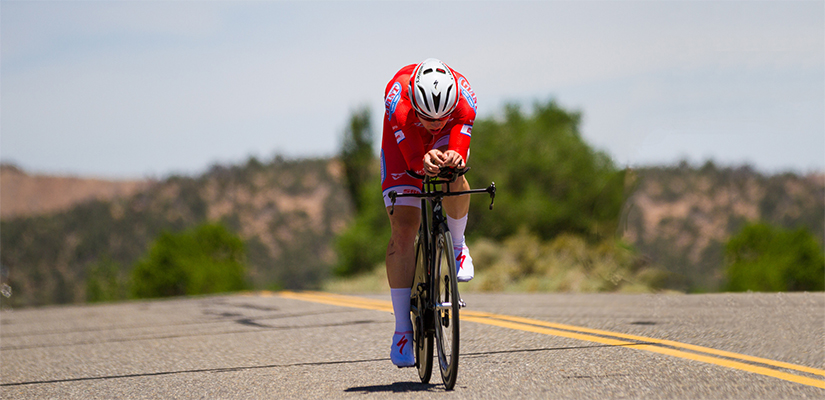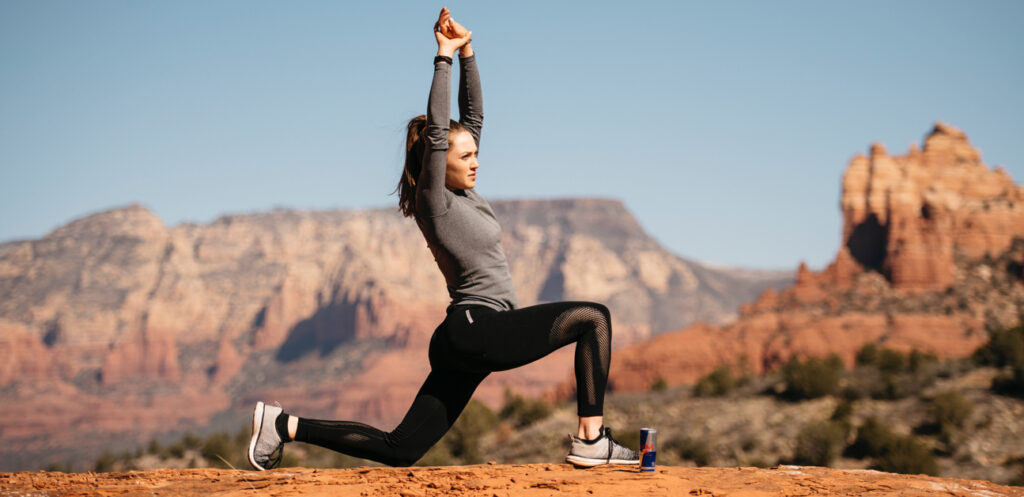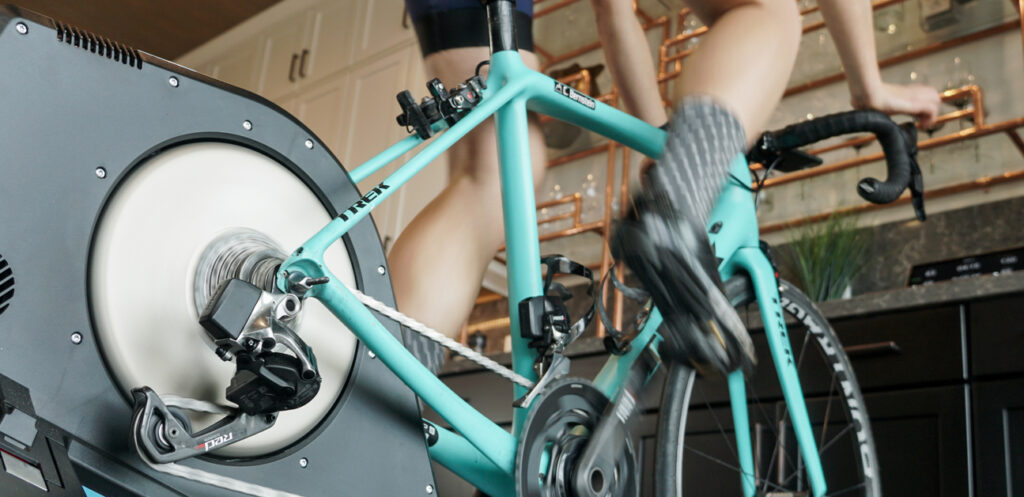Maximize Your Training With Marginal Gains

This article is part 1 of 3 in a series focused on maximizing your training. Check out the next article here.
Marginal Gains is a popular topic for cyclists these days, and for good reason. Finding fractions of a percent of improvement in every aspect of your life can add up to create impressive results.
How you spend your time off the bike and the little things you do throughout the day to maximize recovery between workouts can make all the difference when it comes to reaching new levels of fitness and speed.
We asked some of the top athletes from triathlon, cross country mountain bike racing, and road racing what little things they do to get the most out of their training and the responses we received can all fall into these three categories as summed up by 3 Time Ironman Champion and the top finishing female American at the 2014 World Championships in Kona, Liz Lyles:
@TrainerRoad Focusing on nutrition, recovery & motivation.
— elizabeth lyles (@lizlylestri) January 30, 2015
Nutrition
From on the bike to off, how and what you eat will directly effect your ability to improve.
For example if you bonk half way through a workout, replenishing energy stores will then take priority over physiological adaptations to make you faster. Or if you are going to bed on a full stomach, the secretion of important hormones like growth hormone will be hindered and limit recovery.
While the vast and seemingly endless topic of nutrition offers potential for many marginal gains, let’s focus on some of the most important ones:
- Always fuel adequately 2-3 hours before training. Going into a workout hungry or overly full will take away from performance.
- Start each day off with the immediate consumption of simple carbs and protein. This will jumpstart metabolism and get both sugar and amino acids into the bloodstream. A good example of this is a single serving of greek yogurt with a handful of granola.
- Never eat within 3 hours of going to bed. If you’re not trying to lose weight, you don’t want to go to sleep hungry but you do want to go to bed with an empty stomach. This will allow for adequate release of important hormones that aid in recovery and regeneration of muscle and other systems within the body, while also rebalancing the entire endocrine system.
Rest/Recovery
Cycling is a tough sport. The discipline, focus, and grit you show during your training should also be reflected in the way you recover. After all, you don’t get faster from lung-bursting intervals; you get faster when you recover from them.
The better you recover, the harder you can hit each session on the bike. This fact will lead to big fitness progression as the ability to push yourself harder each time you ride creates more physiological adaptations than doing workouts where you find yourself hiding from the intervals due to your residual fatigue.
Here are the cornerstones of good recovery:
- Stretching. Hit every major muscle group of the legs for 30 seconds X two sets. Repeat this twice per day, in the morning and the evening. Poor flexibility leads to overuse injuries and inefficient recruitment of muscles while riding.
- Sleep. Get at least 7-8 hours every night and try to remain consistent in your sleep schedule. Getting up and 5:00 a.m. one day and 10:00 a.m. the next will lead to poor sleep quality and prevent proper recovery through the night.
- Mobility. Whether you find yourself sitting at a desk for the majority of the day, traveling frequently, or standing in the same position for hours on end, it’s important to keep moving and maintain blood flow. Compression socks can help and can be worn throughout the entire work day to help increase circulation.
Also, just being conscious of your mobility and reminding yourself to stand up, change position, or take short walks throughout the day can do amazing things for your circulation and therefore your recovery and fitness.
Motivation
Why do you ride your bike? What brought you to the sport in the first place? Staying motivated and making sure you are enjoying your sport are so important and often overlooked. Marginal gains are all about adopting cycling into you every aspect of your life, and this can only be done if you truly enjoy it and can remain motivated.
Remember the following in order to stay motivated:
- What are your goals? Nothing will help you get through the worst intervals more than knowing why you’re doing them. Whether you’re going for a World Championship at Kona or you simply want to finish within the top 10 at your local TT, envision the goal and let it drive every pedal stroke, stretch session, and 3-hour hiatus from food before bed.
- Keep it fun! I know it can be tough to avoid getting stuck in a rut with your training as life outside of cycling starts to wear you down. Little things like trying a new TR workout, new outside training route, or even a different group ride can keep things fresh and fun. I’ve even been known to save my favorite kit for those days where motivation is lagging and it can be just enough to keep the energy in the legs.
- Get away from the bike. Cross training activities like hiking, kayaking, even strength training can all add some incredible refreshment to your routine. As you get into the Specialty Phase of your training the focus needs to come back to the bike, but even then it’s important to take one or two days per week to stay active doing something other than cycling. There’s nothing like a hike up a beautiful, flow-y trail to get me itching to ride my bike again.
Check out what the rest of the pros had to say:
@TrainerRoad gotta try to keep it fresh and explore new places to ride, good for the motivation
— todd wells (@yotwells) January 27, 2015
Todd Wells – current Cross Country USA National Champion and a Multi Time Olympian.
@TrainerRoad I have fun and make sure I'm enjoying myself. @HappinessWatts
— Lea Davison (@leadavisonbikes) January 27, 2015
Lea Davison – current Cross Country USA National Champion.
@TrainerRoad perfect ergo set up b4 I get onDrinks mixed. gels ready.Towels and fan set. Epic trainer road session locked in. Phat beats.
— Greg Henderson OLY, BSc. (@Greghenderson1) January 26, 2015
Greg Henderson – professional road cyclist who rides for Lotto-Soudal.
@TrainerRoad if I could say 1 word it's "consistency" I do all the little things all the time #train #nutrition #recover #flexibility
— Justin Rossi (@Rizzo2000) January 26, 2015
Justin Rossi – Category 1 road cyclist for the Marc-Pro Strava Team.
This article is part 1 of 3 in a series focused on maximizing your training. Check out the next article here.
For more answers to your cycling training questions, listen to our podcast Ask a Cycling Coach — the only podcast dedicated to making you a faster cyclist. New episodes are released weekly.

